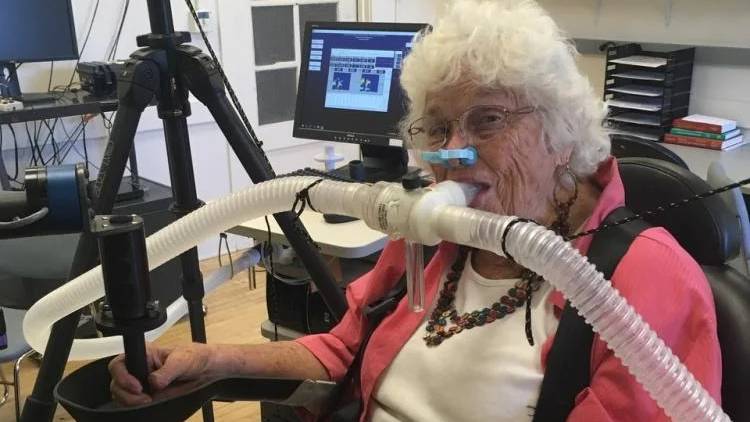A new study led by University of Colorado Boulder engineers helps explain why people over age 65 tend to move slower than their younger counterparts.
The research is one of the first to experimentally tease apart the competing reasons behind this age-related slowdown, and the findings could potentially lead to new diagnostic tools for a range of illnesses, including Parkinson’s disease, multiple sclerosis, depression, and schizophrenia.
The study, published in the journal JNeurosci, involved subjects aged 18 to 35 and 66 to 87 completing a simple task of reaching for a target on a screen. By analyzing patterns of these reaches, the researchers discovered that older adults seemed to modify their motions under certain circumstances to conserve their limited supplies of energy. “All of us, whether young or old, are inherently driven to get the most reward out of our environment while minimizing the amount of effort to do so,” said Erik Summerside, a co-lead author of the study.
Hypotheses: Muscle Efficiency and Brain Reward Circuitry
Two hypotheses were considered to explain the age-related movement slowdown. One suggested that older adults’ muscles may work less efficiently, burning more calories while completing the same tasks as younger adults. The other proposed that aging might alter the reward circuitry in the human brain, as people age and produce less dopamine, a brain chemical responsible for a sense of satisfaction after completing a task.
Experimental Findings: Reaction Time vs. Movement Speed
The study found that both age groups reached their targets sooner when a reward was involved, but they achieved this goal in different ways. Younger adults moved their arms faster toward the reward, while older adults mainly improved their reaction times, beginning their reaches about 17 milliseconds sooner on average. When an 8-pound weight was added to the robotic arm for the younger subjects, the differences vanished, suggesting that the brain detects small changes in energy usage and adjusts movements accordingly.
The research seems to indicate that effort costs of reaching are a determining factor in the movement slowdown of older adults. While the study can’t completely rule out the brain’s reward centers as a culprit, study co-author Alaa Ahmed noted that if scientists can tease out where and how these changes emerge from the body, they may be able to develop treatments to reduce the toll of aging and disease.
If our reporting has informed or inspired you, please consider making a donation. Every contribution, no matter the size, empowers us to continue delivering accurate, engaging, and trustworthy science and medical news. Independent journalism requires time, effort, and resources—your support ensures we can keep uncovering the stories that matter most to you.
Join us in making knowledge accessible and impactful. Thank you for standing with us!

